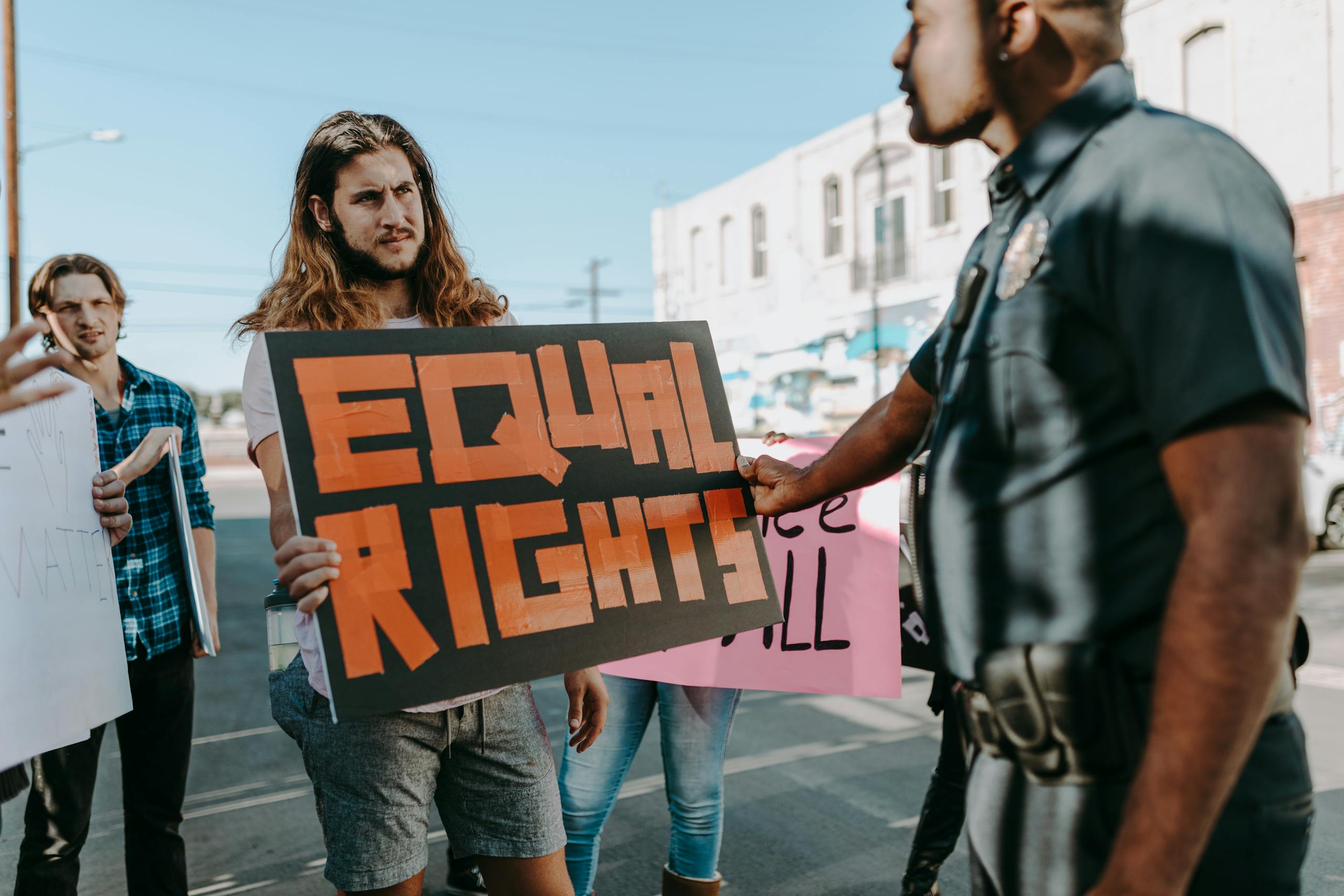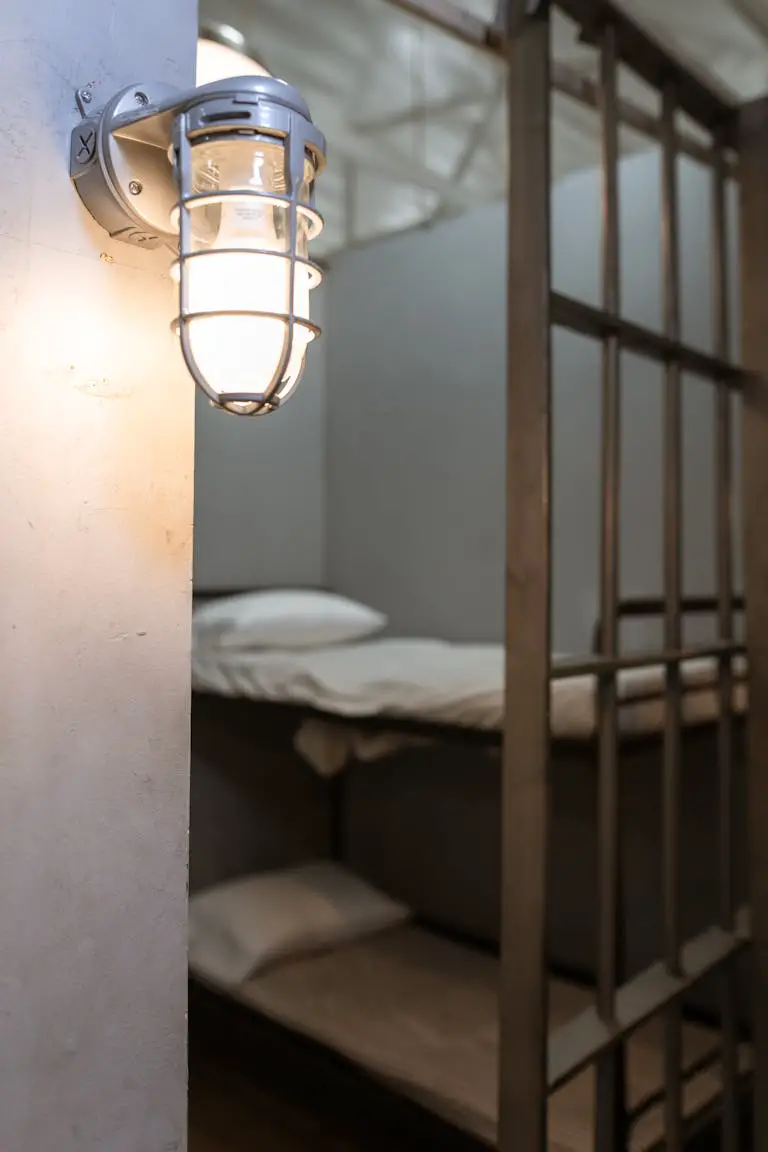What Rights Does a Felon Lose? (The Shocking Reality of Life After Conviction)
Imagine waking up one day and discovering that the world as you knew it has changed dramatically. Doors that were once open are now slammed shut. Opportunities you took for granted have vanished. Welcome to the life of a convicted felon.
Many people underestimate the far-reaching consequences of a felony conviction, thinking it’s just a legal hiccup that fades with time. But let me tell you, as someone who’s been there – it affects everything. And I mean EVERYTHING!
From the moment that gavel falls, your life is irrevocably altered in ways you might never have imagined, as felons lose more than just rights.
In this comprehensive guide, we’ll pull back the curtain on the harsh realities facing individuals with felony convictions.
We’ll explore the rights and benefits lost, the everyday challenges encountered, and the long-term impact on one’s life trajectory. Buckle up – it’s going to be an eye-opening journey.
Table of Contents: Your Roadmap Through the Felony Fallout
- The Domino Effect: How One Little Felony Conviction Changes Everything
- Voting Rights: Silenced at the Ballot Box
- The Right to Bear Arms: Second Amendment Limitations
- Employment Woes: When Your Criminal History Past Haunts Your Future
- Housing Headaches: Finding a Place to Call Home with a Felony Conviction
- Education Roadblocks: Learning Behind Bars
- Financial Fumbles: The Hidden Costs of Conviction
- Travel Troubles: When the World Becomes Smaller
- Family Matters: Custody, Adoption, and Foster Care Challenges
- Professional Licenses: Careers Cut Short
- Civil Rights on Shaky Ground: Jury Duty and Public Office
- Government Benefits: When the Safety Net Disappears
- The Digital Dilemma: Online Presence and Background Checks
- Restoration of Rights: The Long Road Back
- Conclusion: Life After Felony – A New Normal
The Domino Effect: How One Little Felony Conviction Changes Everything
Let’s start with a sobering statistic: according to the National Conference of State Legislatures, there are over 44,000 collateral consequences of criminal conviction in the United States. That’s right – 44,000 ways your life can be impacted beyond the courtroom.
These consequences ripple through every aspect of a convicted felons life, creating a domino effect that can feel impossible to escape.
From basic civic rights to everyday necessities, a felony conviction casts a long shadow. Let’s dive into the specifics and its real-world impact.
Voting Rights: Silenced at the Ballot Box
One of the most fundamental rights in a democracy is the right to vote. Yet, for many convicted felons, this right is stripped away. Here’s the breakdown:
- In 11 states, convicted felons lose their voting rights indefinitely for some crimes or require a governor’s pardon to restore voting rights.
- 21 states restore voting rights to felons after they complete their sentences, including parole and probation.
- 16 states restore voting rights to felons after they complete their prison sentence.
- In Maine and Vermont, felons never lose their right to vote, even while incarcerated.
Real-world impact: Meet John, a 45-year-old father of two. Convicted of a non-violent drug offense in his 20s, John has been out of prison for 15 years, holds a steady job, and is active in his community. Yet, come election day, John is forced to sit on the sidelines, unable to have a say in the policies that affect his family and neighborhood, as he has lost his voting rights, due to being convicted of a felony.
The Right to Bear Arms: Second Amendment Limitations
The Second Amendment right to bear arms is off-limits for convicted felons at the federal level. This ban is lifelong and applies to all types of firearms.
- Federal law prohibits convicted felons from possessing firearms or ammunition.
- Some states have even stricter laws, banning felons from owning other weapons like certain knives or tasers.
- Violation of these laws can result in hefty fines, additional felony charges, and additional prison time.
Real-world impact: Sarah, an avid hunter before her felony, can no longer participate in family hunting trips – a tradition passed down through generations. Her conviction for embezzlement, and legal consequences for something committed 20 years ago, means she can’t even hold her grandfather’s antique rifle, let alone join her kids for target practice.
Employment Woes: When Your Past Criminal History Haunts Your Future
Finding a job with a felony record is like trying to climb a mountain with your hands tied behind your back. The statistics paint a grim picture:
- The unemployment rate for formerly incarcerated individuals is nearly five times higher than the general population.
- 60% of individuals remain unemployed a year after release from prison.
- 75% of formerly incarcerated individuals report that finding a job is “very difficult” or “nearly impossible.”
Real-world impact: Michael, a skilled software developer, was convicted of felony fraud. Despite having paid his debt to society and acquiring new skills during his incarceration, he finds himself repeatedly rejected from jobs in his field. Employers see his conviction and immediately discard his application, forcing Michael to take low-paying jobs far below his skill level.
Housing Headaches: Finding a Place to Call Home with a Felony Conviction
Securing stable housing is a fundamental need, yet it’s a significant challenge for those who are convicted felons:
- Public housing authorities can deny housing to individuals with certain types of criminal records.
- Private landlords often conduct background checks and may refuse to rent to convicted felons.
- In a study by the Ella Baker Center, 79% of formerly incarcerated individuals reported being denied housing or deemed ineligible for it due to their criminal record.
Real-world impact: Lisa, a single mother with a decade-old felony drug conviction, struggles to find an apartment for her and her daughter. Despite having a steady job and good references, she’s been turned away from numerous rentals. Lisa and her daughter find themselves bouncing between friends’ couches and temporary shelters, unable to establish a stable home.
Education Roadblocks: Learning Behind Bars
Education can be a powerful tool for rehabilitation and future success, but felons often face significant barriers:
- Federal law suspends Pell Grant eligibility for incarcerated individuals, limiting access to higher education.
- Many colleges ask about criminal history on applications, potentially dissuading or disqualifying applicants with felony records.
- Certain career-focused degree programs may be off-limits due to licensing restrictions for felons.
Real-world impact: David dreams of becoming a teacher but finds his path blocked at every turn. His felony conviction for aggravated assault, the result of a bar fight in his youth, means he’s ineligible for teaching certification in his state. Despite completing a bachelor’s degree while incarcerated, David’s aspirations of shaping young minds remain out of reach.
Financial Fumbles: The Hidden Costs of Conviction
The financial impact of a felony conviction extends far beyond fines and legal fees:
- Many felons struggle to open bank accounts or secure loans.
- Professional licenses may be revoked, cutting off established career paths.
- The lifetime earnings loss for a former inmate is estimated at $484,400.
Real-world impact: Maria, a once-successful real estate agent, lost her professional license after a felony conviction for wire fraud. Now working minimum wage jobs, she struggles to rebuild her finances. Banks are hesitant to offer her accounts or credit cards, making it difficult to establish financial stability or plan for the future.
Travel Troubles: When the World Becomes Smaller
A felony conviction can significantly restrict your ability to travel:
- Many countries deny entry to individuals with felony convictions.
- Probation or parole conditions often limit travel outside the state or country.
- Obtaining a passport can be challenging for those with certain types of felony convictions.
Real-world impact: James, an international business consultant before his conviction, now finds his world limited to domestic borders. His felony conviction for tax evasion means he’s denied entry to many countries where he once conducted business. James watches as his career opportunities dwindle, confined by invisible borders.
Family Matters: Custody, Adoption, and Foster Care Challenges
A felony conviction can have heartbreaking consequences for families:
- In some states, a felony conviction can be grounds for termination of parental rights.
- Many adoption agencies and foster care systems disqualify individuals with felony records.
- Custody battles may be heavily influenced by a parent’s criminal record.
Real-world impact: Angela, a loving mother of two, lost custody of her children after a felony drug conviction. Despite completing rehab and maintaining sobriety for years, she struggles to regain custody. The courts view her past as a perpetual risk, leaving Angela fighting an uphill battle to reunite with her kids.
Professional Licenses: Careers Cut Short
Many professions require licenses that can be revoked or denied due to felony convictions:
- Healthcare professions (doctors, nurses, pharmacists)
- Legal professions (lawyers, paralegals)
- Financial services (accountants, financial advisors)
- Education (teachers, administrators)
- Real estate and insurance agents
Real-world impact: Dr. Robert Thompson, a respected surgeon with 20 years of experience, lost his medical license after a felony conviction for prescription fraud. Despite completing his sentence and rehab, he’s unable to practice medicine. The skills he spent decades honing are now unusable, forcing him to start a new career from scratch.
Civil Rights on Shaky Ground: Jury Duty and Public Office
Felony convictions can impact other civil rights and responsibilities:
- In most states, felons are barred from serving on juries.
- Running for public office may be restricted or prohibited for those with felony records.
- Some states restrict or revoke the right to hold public office for convicted felons.
Real-world impact: Thomas, once active in local politics, dreamed of running for city council. His felony conviction for embezzlement, however, renders him ineligible to hold public office in his state. Despite his desire to make a positive impact on his community, Thomas finds himself sidelined from the political process.
Government Benefits: When the Safety Net Disappears
Many government assistance programs are off-limits to those individuals convicted of a felony.
- Temporary Assistance for Needy Families (TANF) and Federal cash assistance may be denied to those with drug-related felonies.
- Section 8 housing vouchers can be denied based on criminal history.
- Some states restrict access to food stamps for individuals with felony drug convictions.
Real-world impact: Jennifer, a single mother struggling to make ends meet after her release from prison, finds herself ineligible for food stamps and housing assistance due to her felony drug conviction. Despite her efforts to turn her life around, she’s denied the very support systems designed to help people get back on their feet.
The Digital Dilemma: Online Presence and Background Checks
In the digital age, a felony conviction can haunt you online:
- Background check websites make criminal records easily accessible to anyone.
- Social media and online searches can quickly reveal past convictions.
- The “right to be forgotten” doesn’t exist in the U.S., making it difficult to erase digital traces of past mistakes.
Real-world impact: Mark, convicted of felony theft in his youth, finds his past mistakes following him online. Potential employers, dates, and even new acquaintances can easily find his criminal record with a quick Google search. Despite years of rehabilitation, Mark struggles to escape the digital shadow of his past.
Restoration of Rights: The Long Road Back
While the path to restoring rights can be long and challenging, it’s not always impossible:
- Some states offer processes for expungement or sealing of records.
- Pardons, while rare, can restore many lost rights.
- Certificates of rehabilitation can help in some states.
However, the process is often complex, time-consuming, and can be costly. Many felons find themselves navigating a labyrinth of legal procedures with limited resources and support.
Real-world impact: After 15 years of exemplary behavior following his release, Carlos begins the process of seeking a pardon for his felony conviction. The journey involves mountains of paperwork, legal fees, and years of waiting. While hopeful, Carlos knows that pardons are rarely granted, leaving him in a state of limbo as he awaits a decision that could change his life.
Conclusion: Life After Felony – The New Normal
The reality of life after a felony conviction is stark and often overwhelming. The ripple effects touch every aspect of an individual’s life, from basic rights, and civil liberties to daily necessities.
It’s a harsh truth that many don’t fully grasp until they’re living it: a felony conviction doesn’t just change your legal status – it fundamentally alters the course of your life.
But it’s not all doom and gloom. While the challenges are significant, many individuals with felony convictions have gone on to lead productive, fulfilling lives.
It requires resilience, determination, and often a strong support system, but it is possible to navigate this new normal.
As a society, we must grapple with the long-term consequences of our criminal justice system. Are these extensive collateral consequences truly serving justice and public safety? Or are they creating a permanent underclass of citizens, unable to fully reintegrate into society?
Remember, everyone deserves a second chance. If you or someone you know is facing these challenges, don’t lose hope. Seek out support, know your rights, and keep pushing forward. The road may be tough, but it’s not impassable.







